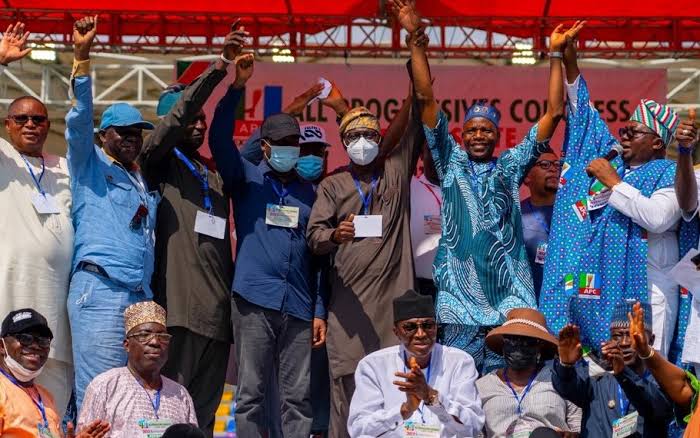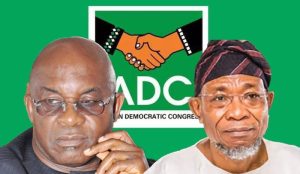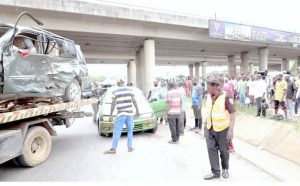
A growing rebellion within Lagos State’s ruling All Progressives Congress (APC) threatens to destabilize the party’s preparations for July’s local government elections, with multiple aspirants and party members accusing leadership of undemocratic candidate selection processes.
The controversy centers on the party’s use of consensus arrangements to choose flagbearers for Saturday’s council primaries. While APC officials maintain this is a legitimate method endorsed by the party constitution, widespread protests have broken out across several council areas where members claim the process is being manipulated to impose preferred candidates.
In Ojokoro LCDA, the situation turned volatile after competing screening committees produced different consensus candidates. One faction endorsed Mobolaji Sanusi, while another backed Rosiji Yemisi. Local party members expressed outrage, with one anonymous source calling Sanusi “an outsider with no electoral history here” allegedly imposed by Lagos Assembly Speaker Mudasiru Obasa.
Similar tensions gripped Yaba LCDA when reports emerged that Babatunde Ojo, who reportedly ranked 11th in screening evaluations, might replace top-scoring aspirant William Babatunde. A coalition of community stakeholders petitioned First Lady Oluremi Tinubu, warning that such “political imposition” would repeat past mistakes that hindered local development.
The crisis has drawn sharp warnings from senior party figures about potential long-term damage. Prominent chieftain Fouad Oki cautioned in an open letter that “disenfranchised grassroots could sabotage not just council polls but future general elections,” potentially undermining President Tinubu’s 2027 re-election prospects in Lagos. These concerns were echoed by Dele Osinowo’s aide Opeyemi Ahmed, who alleged in a since-deleted social media post that leaders were dictating outcomes while pretending to seek consensus.
APLagos spokesman Seye Oladejo dismissed the imposition claims, stating the party had not finalized its primary processes. He emphasized that consensus remains a valid approach that has historically helped manage post-primary conflicts, adding that any dissatisfied aspirants could still contest through delegate voting.
As tensions mount, the party faces mounting pressure to address grievances before Saturday’s primaries. With the opposition likely to capitalize on any visible cracks in the ruling party’s unity, the outcome of this internal crisis may significantly impact both the upcoming local elections and the APC’s long-term dominance in Nigeria’s commercial capital.






